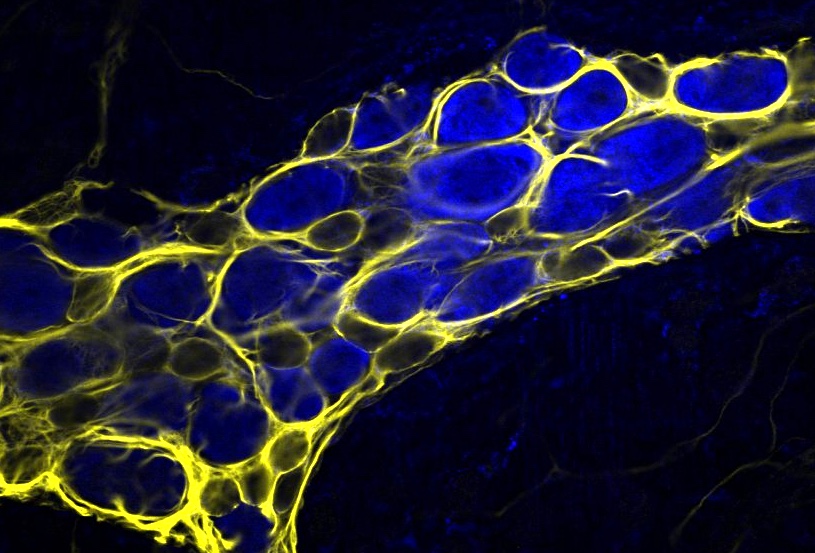MSU neuroscientist Brian Gulbransen recognized for research in gut health
Article Highlights
- Brian Gulbransen, professor and researcher at MSU, was recognized as one of the top researchers in enteric biology.
- His research will widen our understanding on how glia cells affect the enteric nervous system, providing opportunities for future research in improving gut health and developing treatments.
The world of gut health at Michigan State University just got more exciting, as MSU researcher and professor Brian Gulbransen was recognized for his important work in enteric neuroscience.

As a professor in MSU Research Foundation and Department of Physiology, Gulbransen focuses on studying how enteric glia cells influence the neural control of intestinal motility, and how glia cells regulate immune cells and gut inflammation. Frontiers in Pharmacology highlighted MSU as one of the top institutions in enteric glial research worldwide, with Gulbransen listed as one of the top two most influential authors in the field for the past 20 years, with 23 publications under his title.
“The field has grown quite a bit since I came to MSU and much of this is a product of our work attracting attention, especially among new investigators,” Gulbransen said. “Enteric glial biology has now become one of the hottest areas of enteric neuroscience and is attracting attention from the broader neuroscience community and from the immunology community.”
Enteric glial cells are cellular partners of neurons in the enteric nervous system, which is a large branch of the nervous system that controls gastrointestinal functions. Enteric glia were once thought to play only a passive role in supporting their neighboring neurons. However, over the past 20 years, emerging research showed that enteric glia cells play important roles in maintaining gut health and functions controlled by the enteric nervous system.

Researchers have also learned that changes in glial functions contribute to common gut diseases such as irritable bowel syndrome and inflammatory bowel disease. This growing body of research could advance neurogastroenterology and help researchers understand and potentially develop better treatments for diseases in the intestinal tract and disorders of gut-brain interaction.
“The future for enteric glial biology is very bright,” Gulbransen said. “There is still so much to be learned about their basic functions, how they are involved in normal activities of the gut, and how they contribute to diverse disease processes. Glia appear to be central in many processes that drive gut disease so I would anticipate that future work will focus on harnessing the power of glia to improve gut health.”

Gulbransen hopes Frontiers’ nominations could help him recruit new talent to MSU’s cutting-edge research in the field of enteric biology.
- Categories: